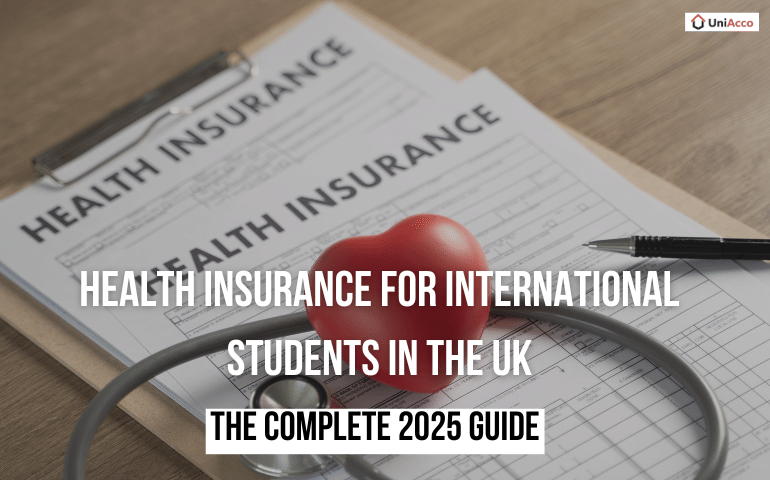Singapore and the UK are both popular destinations for students who want to pursue higher education abroad. But how do they compare in terms of cost of living, student life, quality of education, food, and average tuition fees? In this blog, we will explore these aspects cost of living in Singapore vs the UK and help you decide which country suits your budget and preferences better. Whether you are looking for a cosmopolitan city, a multicultural society, a world-class university, or a diverse cuisine, you will find something to love in both Singapore and the UK. Read on to find out more.
Cost Of Living Calculator
| Description | Cost (£) |
|---|---|
| Total Cost of Accommodation | 100 |
| Total Cost of Transport | 50 |
| Total Cost of Utilities | 30 |
| Total Cost of Food | 70 |
| Total Estimated Cost | 250 |
What Is The Average Cost Of Living In Singapore Vs The UK?
When considering the average cost of living in the UK vs Singapore, it’s essential to factor in various aspects that contribute to the overall financial landscape for students. For those seeking off-campus accommodation in Singapore, the estimated monthly cost stands at S$ 1,515 monthly, slightly surpassing the UK’s figure of £ 1154 (equivalent to approximately S$ 1, 938).
However, if on-campus accommodation is preferred, the monthly expenses in Singapore rise to around S$ 1,530, while the UK maintains a comparable rate of £1,218 (S$ 2,093). Following is the breakdown of the average monthly cost of living in Singapore vs the UK for students as of 2023.
| Items | Cost Of Living In Singapore (Monthly) | Cost Of Living In the UK (Monthly) |
| Off-Campus Accommodation | S$ 550 | £ 408 (S$ 701) |
| On-Campus Accommodation | S$ 565 | £ 472 (S$ 811) |
| Transportation | S$ 110 | £ 65 (S$ 111) |
| Food Cost | S$ 580 | £ 360 (S$ 618) |
| Utility Cost | S$ 137 | £ 189 (€218) |
| Entertainment | S$ 58 | £ 40 (S$ 68) |
| Groceries | S$ 137 | £ 28 (S$ 48) |
| Clothes | S$ 53 | £ 64 (S$ 109) |
| Total Cost of Living with Off-Campus Accommodation | S$ 1,515 | £ 1154 (S$ 1, 938) |
| Total Cost of Living with On-Campus Accommodation | S$ 1,530 | £ 1,218 (S$ 2,093) |
| Annual Cost of Living | S$ 18, 180 | £ 13, 848 (S$ 23,798) |
Student Accommodation In Singapore Vs The UK
Students studying abroad in Singapore and the UK have various housing options to consider, based on their budget and preferences.
On-Campus Vs. Off-Campus Housing
- Both countries offer on-campus and off-campus housing solutions.
- On-campus housing tends to be more budget-friendly and convenient, while off-campus options offer enhanced privacy and comfort.
- The average rent in Singapore for students ranges from S$ 550 to S$ 565 per month.
- The average rent for student accommodation in the UK falls between £ 408 (S$ 701) to £ 472 (S$ 811) per month.
Preferred Areas For Stay
- Popular areas for student accommodation in Singapore are Clementi, Jurong East, Tampines, and Woodlands.
- The UK offers attractive locations like London, Edinburgh, Manchester, and Bristol for student housing.
To gain a clear idea about accommodation abroad, contact UniAcco. UniAcco is a global student accommodation leader offering premium housing near the top universities. With UniAcco, you can easily compare, consult with other students, and select your dream housing, all at affordable prices.
Tuition Fees
Both countries offer excellent career opportunities for graduates in various fields and have strong links with other regions and offer work visas for qualified graduates. When comparing the cost of living in Singapore vs the UK, it’s essential to consider these career prospects alongside the financial aspects.
Average tuition fees: For international students, UK tuition fees range from £10,000 to £20,000 (S$17,176 – S$ 34,352) per year for most subjects. For Singapore, tuition fees range from S$ 30,451 to S$ 70,00 for a four-year course at a local university, as per the study of smartwealth. sg.
Popular courses: Some of the most popular courses in the UK are Business and Management, Engineering, Law, Computer Science, and Medicine. Some of the most popular courses in Singapore are Business and Management, Engineering, Computer Science, Social Sciences, and Medicine.
Scholarship availability: Both countries offer various scholarships for international students based on academic merit, financial need, or other criteria. Some examples are Chevening Scholarships and Commonwealth Scholarships in the UK, and ASEAN Scholarships and NUS Scholarships in Singapore.

Following is a list of the 10 best universities in Singapore and the UK according to QS World University Rankings 2023:
| UK Universities | QS World Rankings 2023 | Universities In Singapore | QS World Ranking 2023 |
| University of Oxford | 2 | National University of Singapore (NUS) | 8 |
| University of Cambridge | 3 | Nanyang Technological University (NTU) | 12 |
| Imperial College London | 8 | Singapore Management University (SMU) | 561-570 |
| University College London | 10 | Singapore University of Technology and Design (SUTD) | 551-560th |
| University of Edinburgh | 16 | Singapore Institute of Technology (SIT) | 701-750th |
| The University of Manchester | 27 | James Cook University Singapore | 751-800th |
| King’s College London | 35 | Ngee Ann Academy | 801-1000th |
| London School of Economics and Political Science | 49 | PSB Academy | 801-1000th |
| University of Bristol | 58 | SIM Global Education | 801-1000th |
| The University of Warwick | 62 | Yale-NUS College | 801-1000th |
Cost Of Food
The average food cost per month in Singapore is S$ 580, while in the UK it is £ 360 (S$ 618). The average grocery cost per month in Singapore is S$ 137, while in the UK it is £ 28 (S$ 48).UK: Food costs around £360 (S$618) monthly for students.
Famous Food
Some of the famous food to try in Singapore is laksa, nasi lemak, char kway teow, kaya toast, bak kut teh, chilli crab, and Hainanese chicken rice. Some of the famous food to try in the UK are fish and chips, roast beef and Yorkshire pudding, shepherd’s pie, bangers and mash, full English breakfast, scones and clotted cream, and sticky toffee pudding.
Affordable Restaurants For Students
Some of the cheap restaurants for students in Singapore are hawker centres, food courts, and Kopitiams, where you can find a variety of dishes for less than S$ 10. Some of the cheap restaurants for students in the UK are pubs, cafes, and fast food chains, where you can find a variety of dishes for less than £ 10.
Transportation Costs
If you are planning to study abroad, one of the factors that you need to consider is transportation costs. While unfolding the cost of living in Singapore vs the UK, we will compare the average monthly costs, modes of transportation available and student discounts in both countries.
- Transportation cost: The average transportation cost per month in Singapore is S$ 110, while in the UK it is £ 65 (S$ 111).
- Modes of transportation: Some of the common modes of transportation in Singapore are MRT, LRT, buses, and taxis. Some of the common modes of transportation in the UK are trains, coaches, buses, and taxis.
- Student discounts: Students can enjoy various discounts on transportation in both countries. In Singapore, students can apply for a concession card that allows them to pay lower fares on public transport. In the UK, students can apply for a railcard that gives them up to a third off on train fares, or a coachcard that gives them up to a third off on coach fares.
Entertainment And Other Expenses
In terms of various expenses, Singapore and the UK show distinct averages per month. Entertainment costs are around S$58 in Singapore and £40 (S$68) in the UK. Clothing expenses stand at S$53 in Singapore and £64 (S$109) in the UK. Utility bills average at S$137 in Singapore and £189 (S$218) in the UK.
Mobile recharge costs are approximately S$20 in Singapore and £10 (S$17) in the UK. Notably, different tax and reimbursement approaches apply to mobile expenses. Gym fees vary significantly based on type and location, ranging from S$50 to S$200 in Singapore and from £15 to £60 (S$26 to S$103) in the UK. These figures provide insights into comparative living costs.
Healthcare Facilities
Singapore and the UK have different healthcare systems, but both offer high-quality care and services to students.
- Singapore: Students can access public hospitals, specialized centres, and polyclinics, as well as private clinics and hospitals. Students need to have a valid student pass and health insurance to cover their medical expenses.
- UK: Students can access the National Health Service (NHS), which provides free or subsidized care for most services, such as GP visits, hospital treatments, prescriptions, and dental care. Students need to pay an immigration health surcharge as part of their visa application to access the NHS.
Part-time Job Opportunities For Students
Students in Singapore and the UK have various options to work part-time while studying, depending on their visa conditions, skills, and preferences. It’s worth noting that these opportunities contribute to managing the cost of living in Singapore vs the UK, allowing students to balance their educational expenses with their earnings.
- Singapore: Students can work up to 16 hours per week during term time, and full-time during vacation periods, if they have a valid student pass and study at an approved institution. Some of the popular part-time jobs in Singapore for students are data-entry operators, waiting or kitchen staff in restaurants, campus staff, tutors, or delivery riders The average salary for part-time jobs in Singapore ranges from S$ 7 to S$ 15 per hour.
- UK: Students can work up to 20 hours per week during term time, and full-time during vacation periods, if they have a Tier 4 student visa and study at a degree level or above. Some of the popular part-time jobs in the UK for students are retail assistants, baristas, customer service representatives, online tutors, or social media managers. The average salary for part-time jobs in the UK ranges from £ 6 (S$10) to £ 10 (S$17) per hour.
Conclusion
In comparing the cost of living in Singapore vs the UK, it’s evident that both countries offer unique financial landscapes for students. While Singapore presents affordable housing and lower mobile costs, the UK stands out with diverse food options and varied entertainment expenses. Ultimately, the choice between these two destinations requires careful consideration of individual preferences, budget, and lifestyle priorities.
FAQs
Q1. What is the UK vs Singapore cost of living?
Ans: The cost of living in the UK is £1,154 (approximately S$1,938) per month, while in Singapore, it amounts to S$1,515 on average each month.
Q2. Which factors should students consider when choosing between these countries?
Ans: Students should factor in housing, food preferences, entertainment choices, and their personal budget when deciding between Singapore and the UK.
Q3. Which country offers more scholarships and financial aid for international students?
Ans: Both countries offer various scholarships and financial aid options for international students, depending on their academic merit, financial need, and other criteria. However, the UK may have more opportunities and diversity of funding sources than Singapore.
Q4. Is Singapore or London a better place to live?
Ans: According to some sources, Singapore has a higher quality of life index, purchasing power index, safety index, health care index, and climate index than London, but also a higher cost of living index, pollution index, and traffic index.
Q5. Which UK country is the cheapest to live in?
Ans: According to some sources, Northern Ireland is the cheapest UK country to live in, followed by Wales, Scotland, and England.
Thank you for reading about the “Cost Of Living In Singapore Vs The UK.” If you’re interested in exploring more articles on related topics, we recommend checking out the below articles:















0 Comments